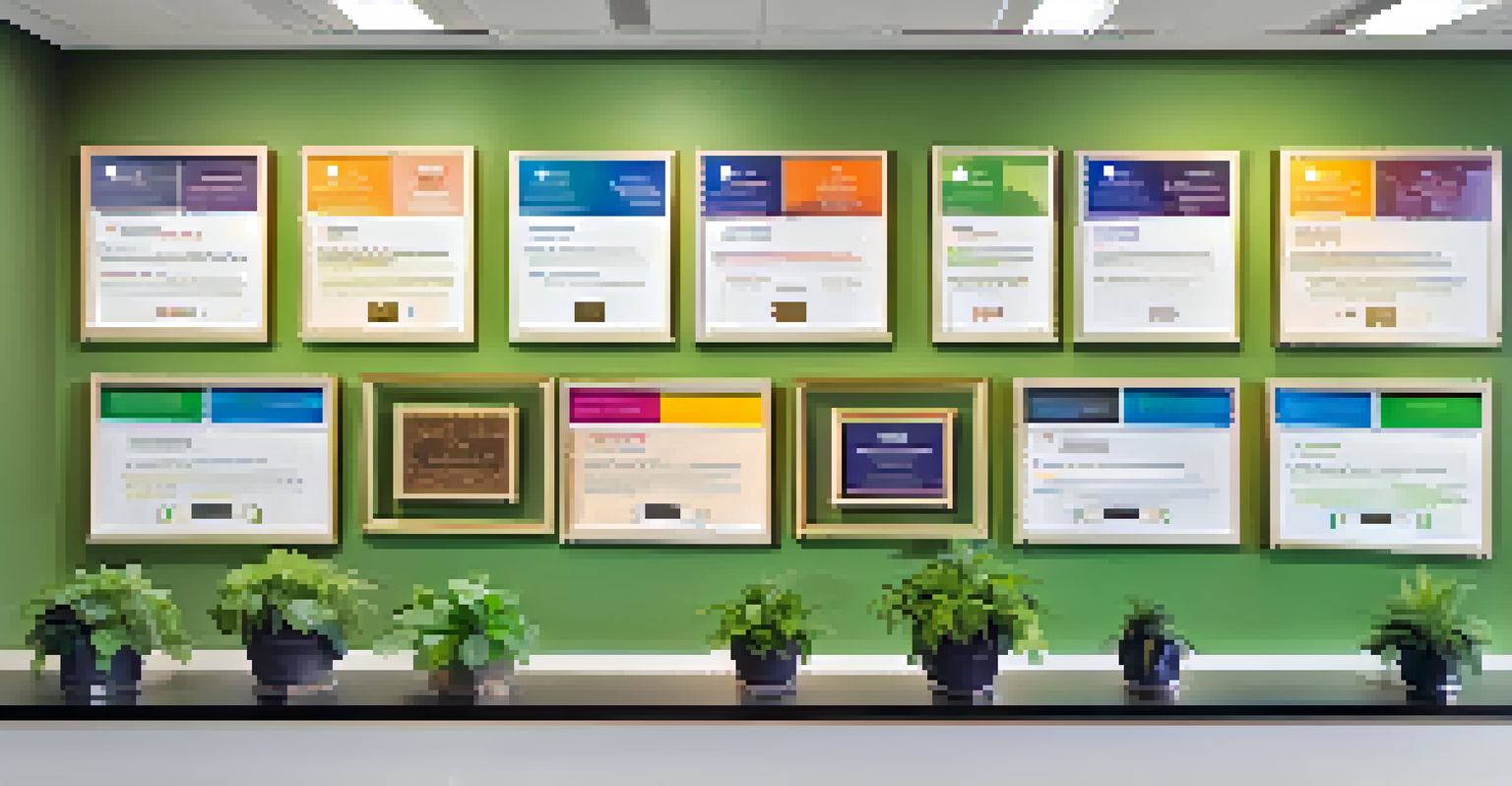How to Foster a Life-long Learning Culture in Organizations

Understanding the Importance of Lifelong Learning
Lifelong learning is the ongoing, voluntary, and self-motivated pursuit of knowledge for personal or professional development. In today’s rapidly changing work environment, encouraging this mindset can significantly enhance employee engagement and adaptability. Just like a tree that continues to grow and expand its roots, organizations that promote lifelong learning can better weather the storms of change.
Intelligence is not static; it is dynamic. It requires a growth mindset to learn and evolve.
A culture that embraces learning doesn't just benefit employees; it also enhances organizational resilience. For instance, companies that invest in training and development often see lower turnover rates, as employees feel valued and invested in. This creates a cycle where knowledge and skills are continually refreshed, keeping the organization competitive.
Moreover, fostering a learning culture can lead to innovative thinking. When employees feel empowered to learn and explore, they are more likely to contribute fresh ideas and solutions. Think of it as a garden where diverse plants can thrive, bringing unique colors and flavors to the overall ecosystem.
Encouraging a Growth Mindset Among Employees
A growth mindset, coined by psychologist Carol Dweck, is the belief that abilities and intelligence can be developed through dedication and hard work. To foster this mindset in your organization, start by recognizing and rewarding effort, not just outcomes. This sends a powerful message that learning and improvement are valued.

Consider implementing regular feedback sessions where employees can discuss their progress and areas for growth. This helps create an environment of openness and support, rather than fear of criticism. Just as a coach guides athletes to improve their performance, constructive feedback can motivate employees to reach their full potential.
Lifelong Learning Boosts Engagement
Encouraging a culture of lifelong learning enhances employee engagement and adaptability, leading to organizational resilience.
Additionally, share stories of individuals who have overcome challenges through persistence and learning. These anecdotes can inspire others to adopt a similar mindset. When employees see real-life examples of growth and success, they are more likely to embrace the idea that they too can improve and excel.
Providing Access to Learning Resources and Opportunities
To truly embed a culture of lifelong learning, organizations must provide access to various learning resources. This could include online courses, webinars, workshops, and even mentorship programs. By offering diverse options, employees can choose what resonates with them, making learning more relevant and engaging.
The more that you read, the more things you will know. The more that you learn, the more places you’ll go.
Consider partnering with educational institutions to offer certifications or specialized training. For example, tech companies often collaborate with coding boot camps to upskill their workforce. This not only enhances employees' skill sets but also positions the organization as a leader in industry knowledge.
Creating a library of resources, both physical and digital, can also encourage self-directed learning. Encourage employees to explore topics that interest them, reminding them that learning doesn’t have to be strictly work-related. Just like a library offers a world of knowledge, your organization can create an inviting space for exploration and growth.
Creating a Safe Environment for Experimentation and Risk-Taking
A culture of learning thrives in a safe environment where employees feel free to experiment and take risks. Encourage your team to step outside their comfort zones by reassuring them that mistakes are part of the learning process. Just as a scientist learns from failed experiments, employees can gain valuable insights from their missteps.
Establishing a no-blame policy when things go wrong can significantly enhance this environment. This means focusing on solutions rather than pointing fingers. When employees know they won’t be punished for failure, they are more likely to try new approaches and innovate.
Growth Mindset Fosters Innovation
Promoting a growth mindset encourages employees to embrace challenges and contribute innovative ideas.
Celebrate both successes and failures to reinforce the idea that every experience is a learning opportunity. By sharing lessons learned from mistakes in team meetings, you create a culture where learning is valued over perfection. It’s like a team of explorers, where every journey, successful or not, contributes to greater knowledge.
Integrating Learning into Daily Routines
To foster a lifelong learning culture, organizations should integrate learning into daily routines. This can be as simple as setting aside time for employees to pursue personal development during work hours. Just like a daily exercise routine, regular learning can become a healthy habit that employees look forward to.
Incorporating learning into team meetings can also be effective. Consider dedicating a portion of each meeting to share insights, skills, or knowledge gained from recent experiences. This not only reinforces learning but also promotes collaboration and teamwork.
Moreover, encourage employees to set personal learning goals and share them with their teams. These goals can serve as a source of motivation and accountability. By making learning a shared journey, organizations can cultivate a supportive culture where everyone grows together.
Recognizing and Celebrating Learning Achievements
Recognition plays a vital role in reinforcing a culture of lifelong learning. Acknowledge employees’ learning achievements publicly, whether through awards, shout-outs in meetings, or feature stories in newsletters. This not only boosts morale but also signals to others that continuous learning is a priority.
Consider creating a 'learning wall' or a digital platform where employees can showcase their certificates, skills, or projects completed. This visual representation of learning journeys can inspire others to embark on their own paths. Just like a trophy case celebrates athletic achievements, a learning wall can highlight intellectual growth.
Recognition Reinforces Learning Culture
Publicly recognizing learning achievements boosts morale and underscores the importance of continuous development.
Additionally, hosting annual gatherings to celebrate accomplishments can foster community and motivation. These events can serve as a reminder that learning is a collective effort and that every contribution matters. When employees feel recognized, they are more likely to continue pursuing their growth and share their knowledge with others.
Evaluating and Adapting Learning Initiatives
To maintain an effective learning culture, organizations should regularly evaluate their learning initiatives. Gathering feedback from employees about the resources and opportunities available can provide valuable insights. This way, organizations can identify what works and what needs improvement, ensuring that learning remains relevant and engaging.
Utilize surveys, focus groups, or one-on-one interviews to understand employee needs and preferences better. For example, if many employees express interest in leadership training, it might be time to introduce such programs. Adapting to the workforce’s changing dynamics is crucial for sustaining a culture of learning.

Moreover, monitor industry trends to ensure your organization stays ahead of the curve. As new technologies and methodologies emerge, being proactive about learning opportunities can set your organization apart. Just like a well-tuned machine, a learning culture requires regular checks and adjustments to keep it running smoothly.